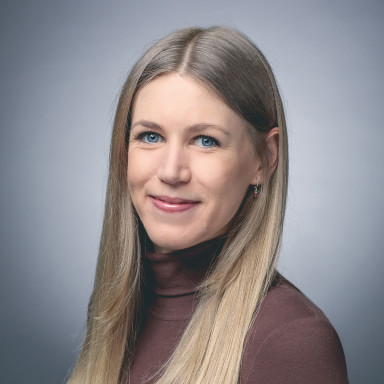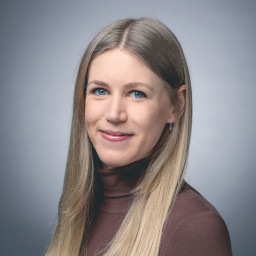Nick Davis has built a strong track record in European income investing and believes the power of compounding dividends is key to long-term success
The fund focuses on investing in undervalued companies that have the potential to deliver attractive returns and grow their dividends
Since launch in 2015, the fund has paid an attractive income to investors. Though yields and income change over time and aren't guaranteed
The fund is on our Wealth Shortlist of funds chosen by our analysts for their long-term performance potential
How it fits in a portfolio
The Polar Capital European ex-UK Income fund aims to deliver an income greater than the MSCI Europe ex-UK index. It also aims to grow investors' money over the long term, with less ups and downs (volatility) along the way.
The fund invests in larger European companies that are undervalued. These are companies that are going through a tougher time or where the manager doesn’t feel the share price matches the company’s longer-term potential but has the potential to bounce back. This makes the fund different from other European funds that focus on companies with high-growth expectations. The fund could be a good addition to an investment portfolio focused on income or provide some diversification to other European or global funds focused on growth.
Manager
Lead manager Nick Davis has 16 years' experience in the investment industry and is a contrarian at heart. He began his fund management career in January 2011 at Columbia Threadneedle (CT). During his time at CT, he ran the Threadneedle Pan European Equity Dividend fund and was deputy manager of the Threadneedle European Select fund.
Davis joined Polar Capital in September 2014 and has managed the European ex-UK Income fund since it launched in June 2015. He has managed other European funds over this period, but his sole focus is now this fund.
Davis is supported by deputy manager Dan Tse, who joined Polar Capital in June 2013. Tse has a strong technical background and is naturally quantitatively focused, a skillset he uses to support Davis when it comes to building the fund. He's built a lot of the team's quantitative tools, and we believe his skill set pairs nicely with Davis’.
The final member of the team is Raniyah Qureshi. She joined Polar Capital in 2018 as an analyst and has covered various sectors over this time. She also sits on the Diversity and Inclusion and the Sustainable committees at Polar Capital.
Aside from his immediate team, Davis makes use of the wider resources at Polar Capital, including their centralised ESG team. Our conviction in this fund lies with lead manager Davis.
Process
The fund aims to pay an income at least 10% higher than that of the MSCI Europe ex-UK index, alongside some capital growth over the long term. Davis looks for undervalued European companies that pay an income and have potential to improve over time. This investment style is known as value investing.
The manager focuses on companies that achieve at least a 10% annual total shareholder return over the medium term. This includes dividend and earnings growth potential. Davis believes other investors underestimate the long-term potential of these companies.
The manager invests in companies that yield (a measure of income) at least 2.5% with the potential to be able to grow their dividends over time. He focuses on balance sheet strength and the competitive landscape. To do this he uses Porter's Five Forces – this helps to gain an understanding of competition, the threat of new entrants and substitutes, and the power of both suppliers and customers. To help limit volatility he considers how cash generative a business is, and how resilient they could be in a market downturn.
The fund invests in around 25-50 companies, with currently 30 in the fund. As a concentrated fund, each investment could have a big impact on performance, which increases risk. The managers also have the flexibility to use derivatives which can magnify any gains or losses and increases risk.
There are three key reasons why Davis would sell an investment. Firstly, if a company’s share price rises close to or above the team's target level, they'll re-evaluate its potential for future growth. Secondly, strong performance – as a company’s share price rises its yield reduces. When this happens, the manager may reduce investments in lower yielding shares and reinvest in higher-yielding opportunities. Finally, he’ll sell an investment if he no longer has as much conviction in the business.
Recent new investments in the fund include Akzo Nobel, a paintings and coatings business. Davis thinks the new management team can steadily improve the business and sees the potential for balance sheet improvement. He believes the company’s shares also look good value compared with its growth potential.
Shares in Carlsberg were also added. The team has long admired parts of the Carlsberg business but previously had concerns about the prospects of its (now exited) Russian business. In their view, business in Europe is solid, and they’re optimistic about the potential for premium beer growth in China. The company has also reduced its debt levels in recent years, leaving it in a stronger financial position.
Culture
Polar Capital was founded in 2001 and prides itself on its collegiate investment culture. Each investment team has autonomy, which allows them to develop and apply their own investment process and philosophy, but with sufficient challenge and oversight.
The culture within the European team is strong and debate is encouraged. While Davis is the ultimate decision maker, he's supportive of the team challenging investment decisions to add rigour to the process.
The firm has a strong focus on shareholders' interests and ensures that fund managers are aligned accordingly and appropriately incentivised.
ESG Integration
The team consider environmental, social and governance (ESG) factors in their research and focus on the risks they believe are most material for each company. This analysis helps them prioritise topics for engagement. While there isn't a dedicated ESG analyst in the team, they make use of Polar Capital's centralised ESG team.
Polar Capital's investment teams are given the flexibility to integrate ESG considerations in a way that best fits their investment approach. The company also provides a range of resources to support the quality of ESG analysis, including third party ESG research and data. Fund managers frequently engage with the companies they invest in on a range of ESG issues, including board make-up and remuneration.
The fund managers are responsible for proxy voting, and a summary of the firm's overall voting activity can be found on Polar Capital's website. All Polar Capital funds exclude companies linked to the production or marketing of controversial weapons such as cluster munitions and antipersonnel mines.
Cost
This fund is available at an annual ongoing fund charge of 0.74%. This makes it one of the lowest-cost actively managed funds in the European sector available through HL. The HL platform fee of up to 0.45% per year also applies.
Please note the fund's charges are taken from capital rather than income. This increases the yield but reduces the potential for capital growth.
Performance
Davis has performed well over the course of his career, covering his time at Colombia Threadneedle and Polar Capital. Since this fund launched in June 2015, it's delivered returns of 92.84%* compared with 94.91% for the average fund in the IA Europe ex UK sector. As always past performance isn’t a guide to future returns.
The fund has slightly lagged the sector average as the manager's value style of investing has been out of favour for much of this time. The aim of this fund isn’t only to beat its peers though – it also aims to be less volatile than the peer group and broader European market, as well as pay an attractive income. We feel this is something it has achieved.
Over the longer term, the fund has tended to lag a rising market but hold up better when markets are falling. We also think the fund compares favourably against value and income-focused peers.
The fund went through a difficult period of performance in 2019 and 2020. Growth-focused companies that Davis tends not to invest in, including those in the technology sector, did well which was a headwind for the fund. In 2022, the value style of investing returned to favour, and this helped performance.
Over the past year, the fund has grown 6.42%* compared with the IA Europe ex UK sector average return of 7.35%. While the fund performed better than the sector until October, the last two months of 2023 were difficult as growth companies performed strongly.
In terms of individual companies, pharmaceutical company Bayer was one of the weakest performers partly due to setbacks around cashflow and a key drug pipeline. The manager has since sold the stock.
The fund grew its dividend by 6% in 2023 and has paid an attractive income to investors over the long run. The fund yields 3.86% as at the end of December 2023, although income is not guaranteed, and yields aren't a reliable indicator of future income.
The defensive and conservative nature of the approach, the disciplined investment process and Davis' track record of European income investing gives us confidence in the fund's long-term prospects and we expect it to be less volatile than its peers.
Annual percentage growth
Jan 19 - Jan 20 | Jan 20 - Jan 21 | Jan 21 - Jan 22 | Jan 22 - Jan 23 | Jan 23 - Jan 24 | |
|---|---|---|---|---|---|
7.65% | -5.25% | 15.08% | 11.49% | 6.42% | |
IA Europe ex-UK | 14.02% | 10.24% | 9.95% | 2.64% | 7.35% |

